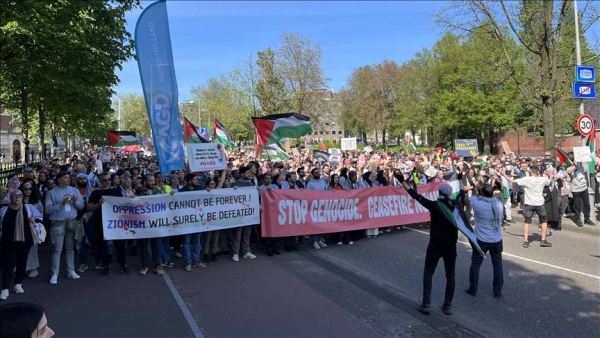
Protests against unemployment and poor basic services continued in the southern oil-rich region of Basra in Iraq.
Police wielded batons and rubber hoses to disperse some 250 demonstrators gathered at the main entrance to the Zubair oilfield near Basra.
Since demonstrations began nine days ago, protesters have attacked government buildings, branches of political parties and stormed the international airport in the holy city of Najaf.
Tensions focused attention on the performance of Prime Minister Haidar al-Abadi, who is seeking a second term after May 12 parliamentary elections tainted by allegations of fraud that prompted a recount.
In his weekly news conference on Tuesday, Abadi promised to work with protesters to fight corruption and said the government would improve services.
Officials and industry sources said the protests have not affected output at Zubair, run by Italy’s Eni, and the other major oilfields including Rumaila developed by BP and West Qurna 2 managed by Lukoil.
Many Iraqis believe their leaders do not share the country’s oil wealth. Some demonstrators said foreign laborers were robbing them of employment at oil companies.
Three protesters have been killed in clashes with police, including one at West Qurna 2, and dozens wounded. Dozens of policemen were also injured.
“We the people of Basra hear about the Iraqi oil and its huge revenues, but we never enjoy its benefits,” said 24-year-old protester Esam Jabbar.
“Strangers have decent jobs at our oilfields and we don’t have the money to pay for a cigarette. That’s wrong and must be stopped.” Jabbar said he was unemployed.
Iraq is the second-largest producer in the Organization of the Petroleum Exporting Countries after Saudi Arabia.
Crude exports account for 95 percent of state revenue and any disruptions could badly damage its economy at a time when Iraq needs tens of billions of dollars to rebuild after the three-year war with the ISIS terrorist group.
Prolonged instability in the south could drive up global oil prices. Production at the Zubair field was 475,000 bpd, an Iraqi oil official said in May.
Iraq exported an average of 3.566 million barrels per day from its southern oilfields so far in July, said senior oil officials, levels confirming that the troubles have not disrupted crude shipments from the region.
Demonstrators, who have endured sweltering heat to press their demands, show no sign of letting up. They have vented anger in Basra, the biggest city in the south, Samawa, Amara, Nassiriya, Najaf, Kerbala and Hilla.
Murtadha Rahman, 22, ran barefoot on the scorching pavement to try and escape a charge by police outside the Zubair field.
“I live in a place which is rich with oil that brings billions of dollars while I work in collecting garbage to desperately feed my two kids. I want a simple job, that’s my only demand,” said Rahman, who said he was beaten by police.
“I won’t go even if you kill me I will stay her. I want a job.”












